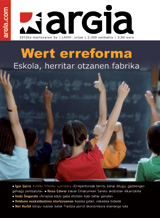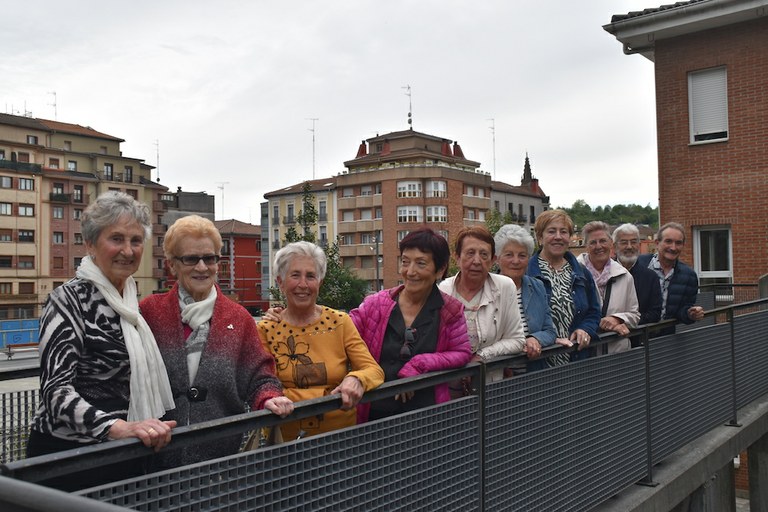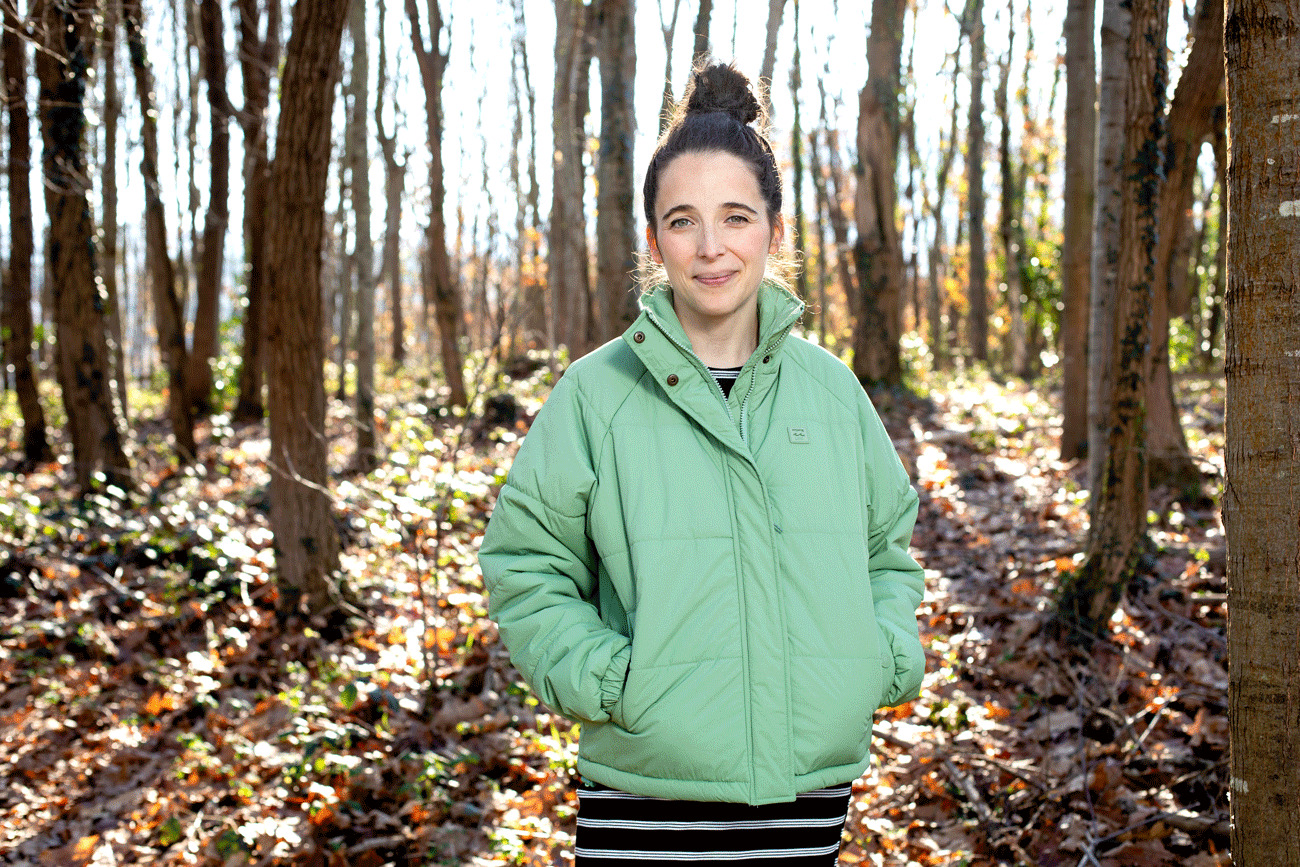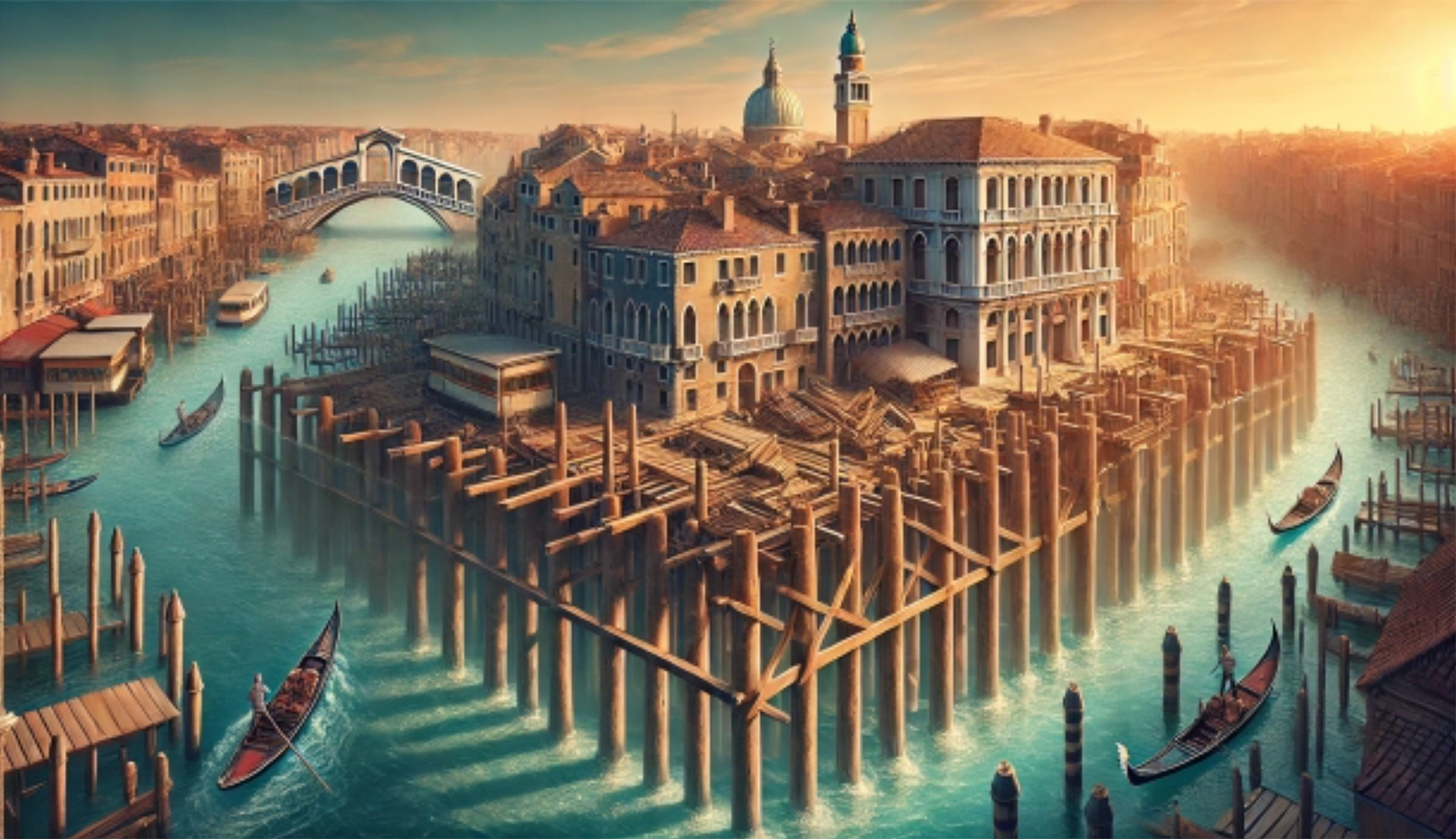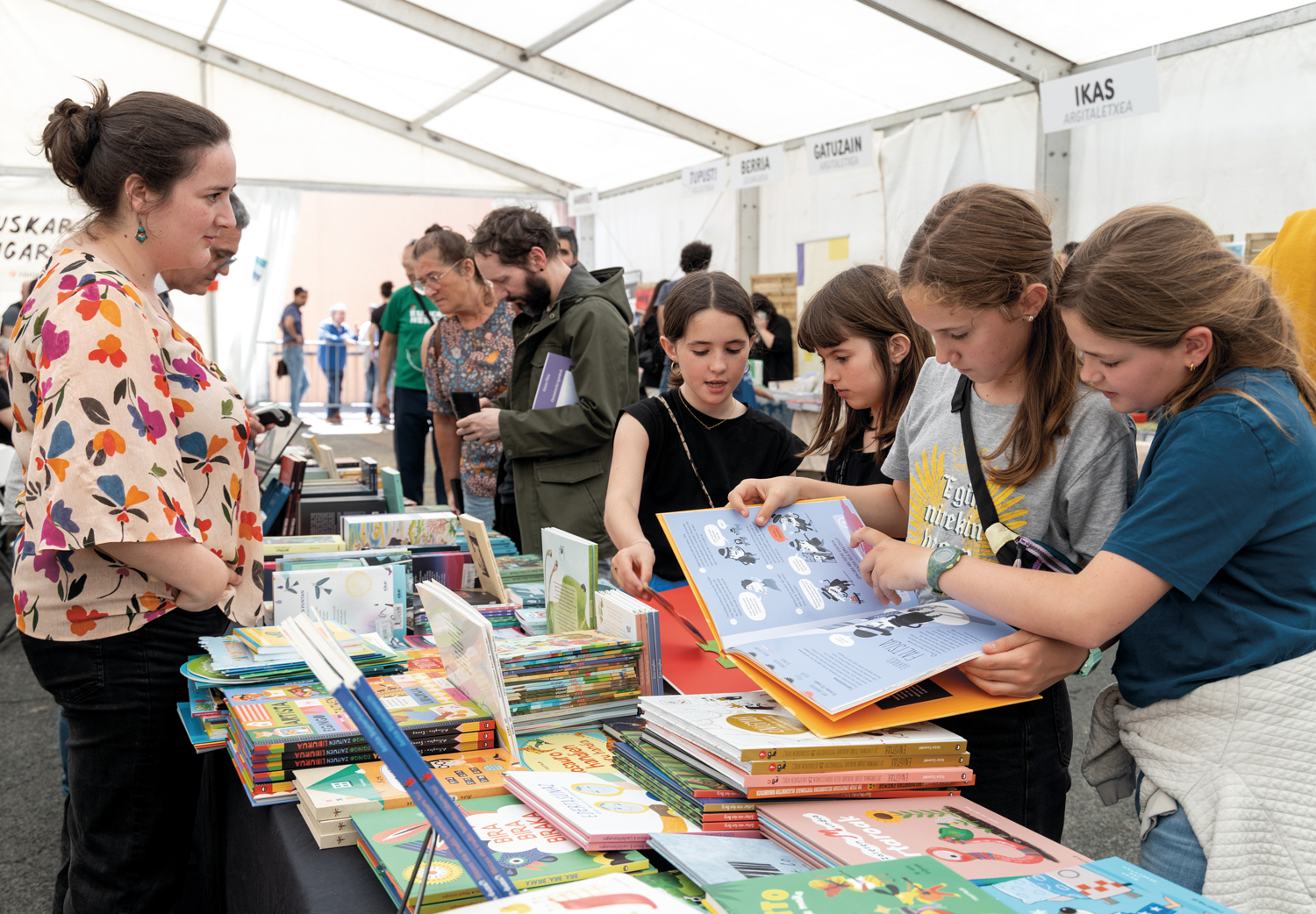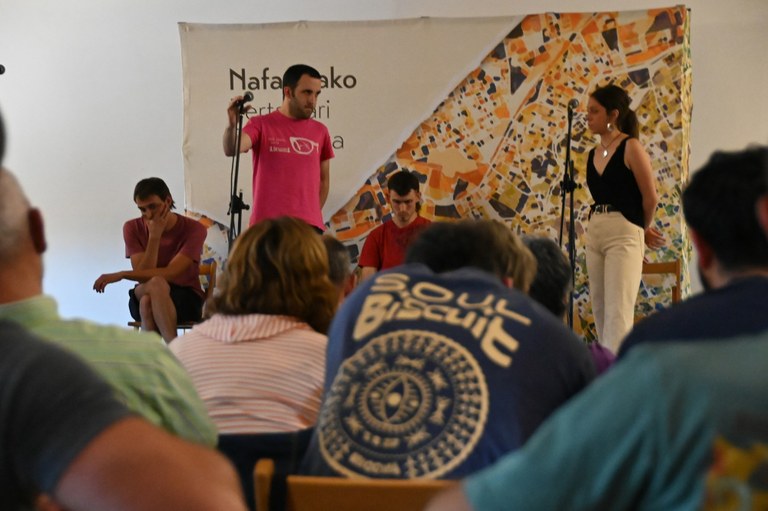"Reason shouldn't be chance."
- He's a philologist. He doesn't feel comfortable thinking it's the Basque world. However, he is an “Euskalzulo”. We talked to Iñaki Segurola (Azpeitia, 1962) on the occasion of the book Alberdania, 2012). Before this program the thinker of Azpeitia already has two others on the street. Both topics have been addressed at the starting point of the interview.
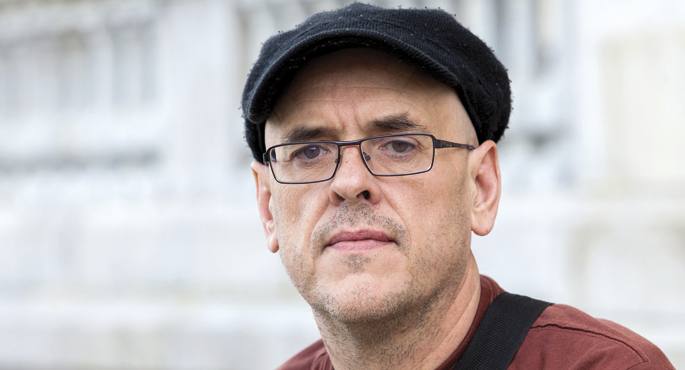
“Thinking has nothing to do with respect,” you said on these pages. Thought and respect will continue in our activity.
I feel respect and fear very close. Then it clashes with respect as free as possible. Of course we have to live together and with respect, you can't say anything, you can't miss a friend. Sometimes we lose it too easily. So, in a way, I mean we have to fight between thought and coexistence.
“Summer storm and winter sun.” Here are two of his political symbols. From my yolk, indicators of the book, among others.
A friend told me recently that he liked my last book, but that if I have made a lot of spills for the word game, or if I have fallen into a simple word game ... So sometimes I stay myself. Is the writing really meaningful or thought about? Is it a nice word game or is it because it tastes like it? Or is it because it's strange, or what is it? The winter sun we all like, although it's not complete. And in summer, as we get bored easily, then the August storm is very beautiful. In a way, this quote shows a certain taste for the contradiction.
You now say that you cannot be right. What evolution has you noticed in your trajectory?
It's a sort of wording of works from my point of view to the radio, which couldn't be considered books. These are two books. There is a clear difference – I am referring to the issue of format – with regard to the first and the latter. It was written with a long letter and it was written with a short letter. This is an attempt to know what I can say in the shortest possible time. It's not a book of aphorism, because it's hard to make a 300-page book of aphorism. In other words: What?
There's no literature, you say you've come back to it.
I do not feel at ease with the name of writer, nor with the name of culture and literature. I've invented the word Berbatu, because the vocabulary is ugly, I've taken the reference in Byzantine.
From the Basque literature, I am a little surprised, perhaps because I was born, raised and alive in the town where I speak in Euskera – now living in Azkoitia. It is up to the people of Euskaldunes to write in some way, not in cemented language, full of clichés and in a language that makes us little graceful. Those of us who have been lucky have to guess something else. It's up to us to stylize that natural language. It's not easy to explain.
Let's go into the book, starting with the front page. Image of thinker Auguste Rodin in the glass container, including computer image.
Next to the title is the sculpture of Rodin, the thinker in the center of the container. You couldn't put it in the bowl, you had to put it on the surface. There is therefore a contradiction, because it is not within. It was my little idea. To think that it's not an inert piece of the container, a dead piece, but something alive. A thinker appears that opposes the container. To start from the word, rather than from the dead word. The computer is a modernized thinker. It's a sculpture by Rodin, but we're all in front of the computer. Although I don't think about the computer, I write it by hand, on paper, and then I rewrite it on the computer.
Reason cannot exist, ideas can exist!
They're for ideas. I have ideas, I can't even think. I am like that or so, and the rest is something that's out there. Reason needs something that works by itself, like fire or water, like light. You can't have reason. That is, things happen and it is said that “there is no right”, but there is reason, you want it, or we are all fighting for reason. Reason should not be “chance.” You should learn to despair without being right. Of course, the reality is different, we live trying to be right, we have to give reason to the child, and from there we come. He very much likes to give reason to himself and others recognize that we are right.
The book consists of 5 interludes. Debates of the European Parliament Otherwise, madness.
Call madness or call surrealism if you want. I want to say that I write and I must interrupt it, and with what: with eccentricities, with a nonsense. We need an interruption of the problem... So, I opened the interludes.
Callar can also cause insanity.
Silence is one way of being in life and death is another way of quiet. It is often said that the madman loses all reason, loses the connection with reality, and in silence, when it is total, we also stay out of normality. Where the madness begins, where it ends...! ?
How do you learn to live without reason?
Bad. Like everyone else. To live without reason is always a job. If anyone wants to do that job, at least. It's very difficult. What he writes is me, the person is with my name, with my life, with my future, with my reasons and my ideas. I mean, maybe we can say that we are able to live without reason. But as long as I'm there alive, with the future and the fear, with ever stronger chaos, it's harder to get there, to live without reason.
He's wearing plaster on his leg. For example, how do you experience this situation?
I'm experiencing a moment. In a way, this gap makes you come out of the world. It's a little relieved, but it's also looking at you all over the world. On the other hand, it's very heavy, I'm wearing six or seven kilos plaster and it goes for a long time. The situation overcomes you, leaving normal is not bad, but bad moments are not too few.
The simplest thing is to explain it orally, probably the hardest. To give explanations, one must have been born or be more skillful. Why the book?
Yes, in a way. Among people I see things too complicated and I am inclined to end abruptly. I mean, let's leave it, it's really hard to say this or the other, even more so if you don't have a person listening to you, what you're doing now as a journalist. In the normal talk, that's not usually the case. So, as a rule, things are too complicated and I am inclined to cut them with a neckline. I let the reasons I can give be put on paper. One day, maybe I'll learn to say, and I'll stop writing.
We're in Donostia, it's easier to play in Azpeitia, maybe.
Azpeitia or Azkoitia have nothing to do with Donostia-San Sebastián or Donostia-San Sebastián with Vitoria-Gasteiz. In the environment in which I live, almost, you take characters like me in a healthier way, half-joking, mocking at me: “How is that book going?” you can listen to it in a healthy way. People see you as a weird or special guy. I've lived in the city, but I'm not able to tell here what things are like. In Azkoitia or in Azpeitia the environment is healthier and things are said more naturally.
We have recently experienced the attacks of nature, the messages have spread.
"State of alert" is the word that the media most likes. There are colors in the alert state. We don't know how much! They want people to be afraid...! ? I call these religions. I have never been as far away from them, nor have I lived as ignorant as I am today. I have a tremendous pause with the present day, sometimes I'm surprised: “Haven’t you heard?” “No.” I don't know what the last news is. It is not a premeditated attitude, it is something I have ruled out to continue with today. In other words, the news of the day has become hour, minute by minute, second by minute. What madness! It may be a matter of generations, I'm not interested in that. The weekly (Light, for example) makes me a nice size.
He also mentions Indernet in the book.
Language follows its path. To me, language and inner ear ask me to call me Indernet. Powerful, powerful Indernet, isn't it?
Is sadness your cry?
No. It's a sporadic humor. Sadness pushes us down, sadness is not a good thing, but not to talk about excess joy. That is to say, the greatest dispurposes and misgivings in history have taken place at a given moment, in a moment of humor, in an imbecile and stupid mood of obedience. In contrast to this, I mentioned sadness, but I did not defend it. For my part, I am inclined to sadness, and sometimes it is necessary, because things look better from below than from above.
Tell me about God, how are you doing with him?
B... Now, energy is called god. Everything is energy, “energy, I know what, I don’t know what, good and bad...” It's the word I hear the most. Money is also, of course, the contemporary face of God. From the hard point of view, God is money and from the soft point of view energy. We are all energy.
How do you carry that?
There's always curiosity, that's nothing to cover, of course. We dropped here. How have we come to this? Of course, finding an answer is very difficult. Swimming, then, in ignorance, sometimes with tranquillity and others in the sea, according to the nature of the waves.
In addition to that inaccessible God, there are some proper names in the book. For example, Sigmund Freud.
Freud helps you take self-importance away. How much have we taken care of ourselves? We are not. At least, not as much as we think. That's what Freud teaches us. There are forces and what comes to our consciousness or surface is only a small part of it. Beware of how we present ourselves, what we say. That's the battle. I also carry that struggle. Don't think I care about that. When we publish a book, we have something, a need to appear. A whim, a claw. Then comes the fight forever.
Freud bidelagun, baita Axular ere...
Nire belaunaldiko literatoek ez bezala, nik ez nuen inoiz pentsatu liburu bat idaztea. Hogei urterekin publikatzeari ez nion zentzurik ikusten. Axular eta Leizarraga irakurtzeari ere ez nion zentzurik ikusten. Baina, literaturaren ofizioan sartzeko Axular irakurri behar dela uste dut. Urteak pasatu behar direla belarria eta eskua trebatzen, gero zerbait esateko izango baduzu, taxuz esateko. Nik hogei urterekin idazten hasten den jendea ez dut ulertzen. Beno, poemak eta idazkiak idaztea ulertzen dut, lagunari edo txoratzen zaituen neskari erakusteko bai. Baina publikatzeko! 40-50 urterekin egitea normalagoa iruditzen zait.
Hizkuntzak harritzen zaitu oraindik ere. Arrastazioa hitza lekuko.
Euskaraz aritzen den tokietan beti bada harritzen zaituen zerbait. Arrastazioa hitza amari ikasi nion duela gutxi: “Hori arrastaziyua!”. Beti arrastaka eta inora ezin iritsi dabilenaz ari da. Hala ere, nahiz ni hiztegigile izan lanbidez, hitz solteak baino gehiago esanak du garrantzia niretzat. Horrek ez du hiztegiaren aberastearekin ikustekorik, ez kulturarekin ere. Hizkuntza doan ematen zaigun zerbait da. Ez daukat beste modurik esateko.
Euskarak badu indarrik, badu graziarik? Hiru hizkuntza nagusi ditugu Euskal Herrian. Laugarrena dator indartsu...
Zein da laugarrena? Ingelesa? Urdua ere sartu da Azkoitian. Pakistango jendeak hitz egiten du, arabiera. Azkoitian hori da hirugarrena. Euskarak indarra duen lekuetan balio du zauritzeko, maitatzeko, gorrotatzeko... Baina leku horietatik kanpo, hiriburu honetan, Donostian, euskara sekta bateko hizkuntza sentitzen dut. Gasteizetik hona datorren batek ez du berdin sentituko, noski. Baina Azpeititik edo Azkoititik ateratzen den batek? Ni ez naiz sekta horretakoa, euskaraz eta asko hitz egiten den herri batekoa naiz. Tristuraz esaten dut, baina nire belarriak sentitzen duena da.
Zendu hitzaren aldean, hil hitza hobesten duzu. Adibidez. Dena dela ere, bizitza, batez ere “bizi boladak dira” diozu.
Eskerrak horri. Askotan ahaztu egiten zaigu hori. Hori sentitzea inportantea da, ezer ez dela betiko. Horrek lagundu egiten digu arnasa hartzen.
By Samuel Mariño + Gabta Consort
Director and violin soloist: Assisted by Stefano Barneschi.
What is it about? Works by Purcell, Händel, Geminiani, Vivaldi and Graun.
When: May 9th.
In which: At the Baluarte Palace in Pamplona.
... [+]
hezur berriak
Ane Labaka Mayoz
Susa, 2025
Pond of Venice, year 452. Prompted by the Huns' invasion, several inhabitants of the interior of the Italian peninsula took temporary refuge in the swampy area. But the Lombard invasions came in a few years, and it would become a permanent home for those immigrants. It was a... [+]
Between January and May 2015, after finishing my studies at the age of 25, my friend Irati Astobieta and I toured Chile, Argentina and Uruguay as part of the Calabazan Wandering Project. Using the poetic tool of whispered poetry, we gave Basque poems from mouth to ear in the... [+]
A fund for the State of Israel has bought most of the macrofestivals in the Spanish state. I'm talking about To. Whether it’s a festival with a beach side driveway or a festival with tattooed hardcorettes, an exchange of 1,400 million euros to build homes in Israeli colonies in... [+]









